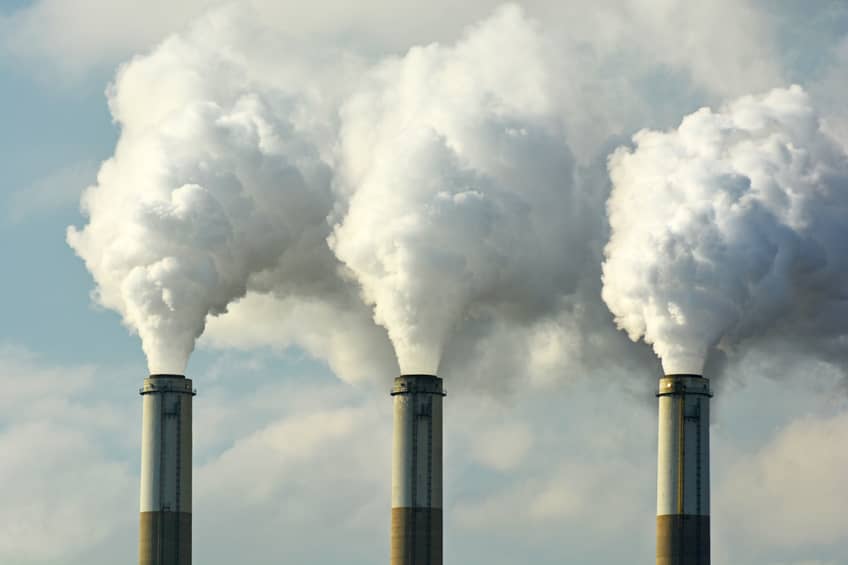BRUSSELS (Reuters) – European Union negotiators agreed to a compromise on carbon market reforms on Thursday, with the bloc keen for a deal this week to show leadership at U.N. climate talks in Bonn.
Agreement was reached early on Thursday after months of dogged talks among EU nations, the European Parliament and the EU executive to finalize reforms to the EU Emissions Trading System (ETS) for after 2020.
The cap-and-trade system is the EU’s flagship tool for reducing greenhouse gases and meeting its climate goals by regulating emissions at some 12,000 industrial and power installations. But it has suffered from a glut of permits, giving added political urgency to the push for reform.
Negotiations had been stuck over the uses of a new clean technology fund, with some lawmakers and member states demanding that installations with emissions of over 450 grams of carbon dioxide per kilowatt hour be banned from receiving funds. That would rule out coal-fired power plants.
Late on Thursday, negotiators provisionally agreed to the restrictions on the so-called Modernisation Fund with the limited exception of sustainable district heating projects in Bulgaria and Romania, EU sources said.
The 28-nation bloc had been pushing for a deal this week to show climate leadership during U.N. talks this month aimed at finding ways to implement the 2015 Paris accord it helped broker to curb the worst effects of global warming.
“The outcome significantly strengthens the ETS, maintains the environmental integrity of the system, supports innovation and modernization in the energy sector,” Annikky Lamp, a spokeswoman for Estonia, which holds the bloc’s rotating presidency, said in a statement.
The results of the compromise between the EU lawmakers still needs to be formally endorsed by member states and the European Parliament.
Coal-dependent Poland had fought hard against the restriction on how the Modernisation Fund could be used and likely still has reservations about the deal.
The provisional accord strikes a delicate balance seeking to be ambitious on climate while still offering protection for energy-intensive industries at risk of relocating abroad to avoid climate legislation.
The two EU institutions have agreed on doubling the rate at which the scheme’s Market Stability Reserve (MSR) soaks up excess allowances, as a short-term measure to strengthen prices. A new mechanism to limit the validity of allowances in the MSR will become operational in 2023.
The overall cap on the total volume of emissions, known as the linear reduction factor (LRF), is due to be reduced annually by 2.2 percent.
EU sources said negotiators also agreed to set at 57 percent the share of carbon credits to go to auction.
In a move to defend industry against a reduction of free carbon permits if a cap on overall allocations known as the cross-sectoral correction factor (CSCF) is applied, the deal allows for a conditional lowering of the auction share by 3 percent.
European carbon prices rose as much as 3.3 percent to 7.98 euros per tonne following the deal announcement.
Some groups criticized the deal for removing excess carbon permits too slowly to stimulate the clean energy investments needed to meet the Paris climate goals.
“Today’s deal ignores the urgency to reduce emissions quickly and hands out billions in pollution subsidies, meaning that the EU carbon market will continue to fail at its task to spur green investments and phase out coal,” said Femke de Jong, EU policy director at Carbon Market Watch.
The European Commission said in a statement that the deal would put the EU on track to achieving a significant part of its Paris pledge to cut greenhouse gas emissions by at least 40 percent by 2030.




